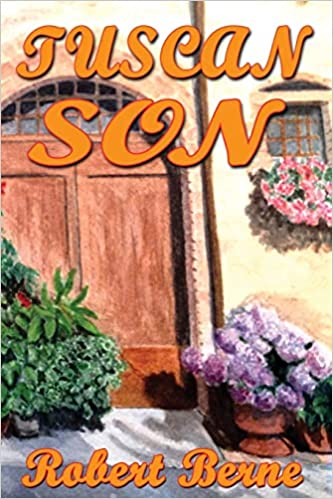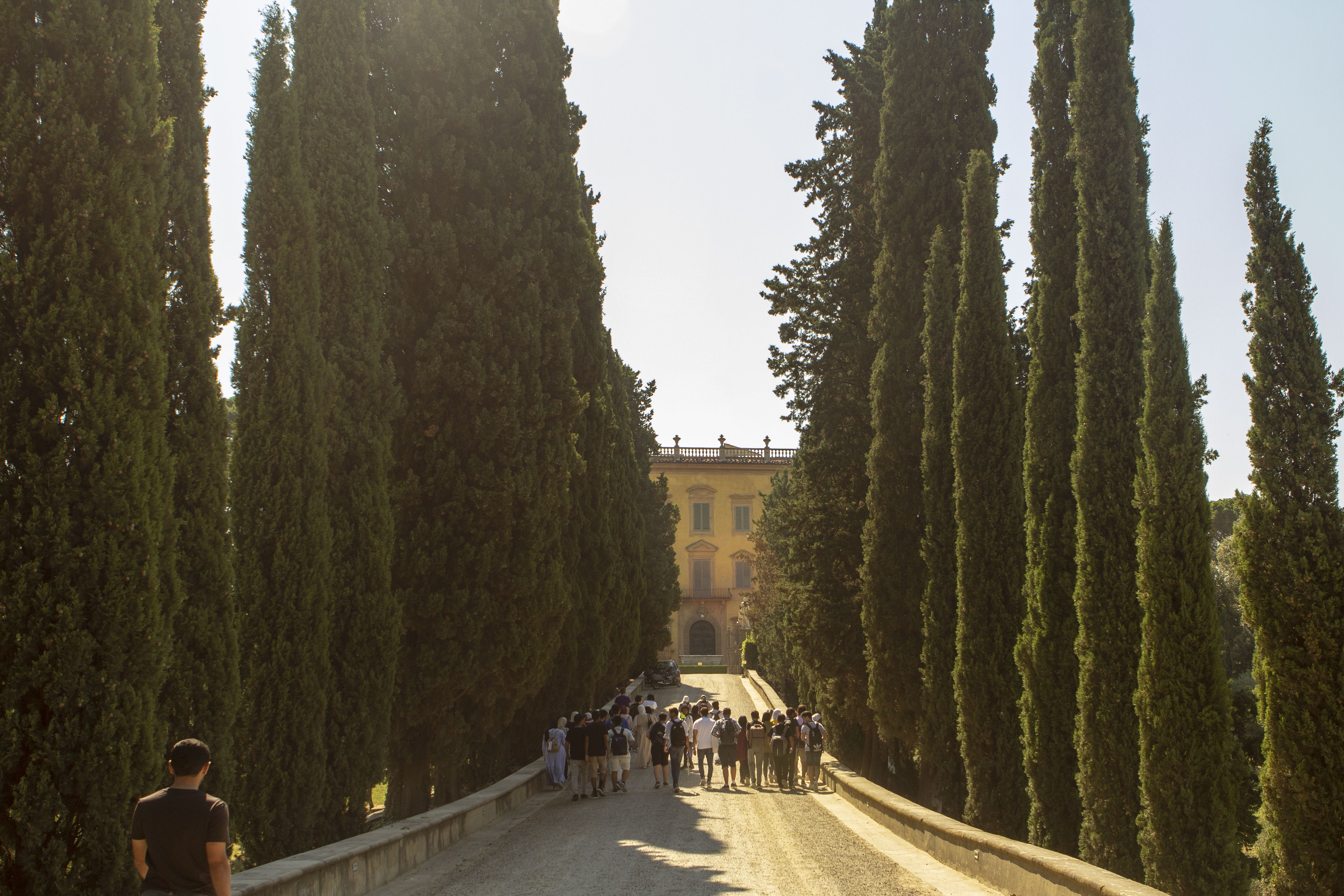[ad_1]
“I did every thing proper as a college administrator, so how did I finish up in this Panamanian jail mobile?”
That sentence had been swirling all-around Robert Berne’s head for 10 many years although he served as New York University’s government vice president for health and fitness. It sparked his need to try his hand at fiction—and, after he retired in 2017, it became the first sentence of his debut novel, Tuscan Son (Moonshine Cove Publishing, 2022).
Berne, who labored at NYU for 41 years, together with 15 as a vice president, explained to Inside of Higher Ed that the novel was encouraged by his time as an administrator. Even though he’s by no means been to prison, he and his protagonist have loads of other items in prevalent: both served as vice presidents at private Manhattan universities, equally invested time in Italy negotiating with lifeless donors’ unsatisfied children more than a substantial present of home and each have a good deal to say about the politics and bureaucracy of greater schooling administration.
 “My objective was to explain to some interesting items about university life, but I made a decision I didn’t want to publish a nonfiction memoir and I didn’t want to publish ‘The 7 Matters I Realized as a University Administrator,’ since I in no way browse individuals things,” Berne mentioned. “So I considered turning it into a novel was the best way to do it.”
“My objective was to explain to some interesting items about university life, but I made a decision I didn’t want to publish a nonfiction memoir and I didn’t want to publish ‘The 7 Matters I Realized as a University Administrator,’ since I in no way browse individuals things,” Berne mentioned. “So I considered turning it into a novel was the best way to do it.”
The novel follows Bill, the senior vice president for educational initiatives at the fictional Olmsted University—Berne’s proxy for NYU—as he will help iron out the conditions of a generous donation bequeathed by a wealthy Italian alumnus. As the story progresses, Bill’s route to the jail cell in Panama is bit by bit uncovered as he travels via the Tuscan countryside and comes into possession of a hazardous mystery.
Structured as a collection of journal entries composed by the narrator in jail, Tuscan Son intercuts descriptions of daily life in the Panamanian jail with wryly recounted vignettes and observations about his job at Olmsted. On just one web page the narrator is speaking about the annoying ubiquity of college committees on the up coming he’s getting shaken down for cigarettes in the jail yard. Berne evokes a scholar protest in the university president’s workplace with the exact same form of intrigue he uses to describe the drug-spouse and children turf war Invoice gets caught up in.
“There ended up intentional parallels drawn among performing small business in the prison and carrying out organization in a university,” he claimed. “You’re striving to gain assistance and constituencies who will favor what you want to do.”
Numerous of the people and circumstances in Tuscan Son would be common to anyone in higher schooling: an overcome and embattled president making an attempt to be sure to everybody a bevy of righteous pupil activists issuing needs for fossil gasoline divestment and a squabbling college working group making an attempt, and mainly failing, to attain a compromise.
“As an administrator, from time to time it is anarchy, even though to lots of school, it is a corporate behemoth,” Bill writes of Olmsted in the novel. “As quirky as Olmsted appears to be now, it is regular as opposed with becoming in a Panamanian jail.”
Based mostly On a True Tale
Tuscan Son kicks off with an Italian alumnus donating an overall Tuscan village to Olmsted to provide as the hub for a study overseas program. Right after much infighting among school section chairs and deans, Invoice, Olmsted’s resident “academic troubleshooter,” is despatched to Italy to negotiate the terms of the bequest with the donor’s attorney and offer with the attempts of the donor’s offended heir to wrench back regulate of the assets.
The descriptions of the Tuscan hills and historic villages are educated by the time Berne and his wife have invested in the area, 1 of their preferred vacation destinations. But Berne stated he has also dealt with a incredibly very similar donor scenario, in the identical location of Italy.
In 1994, NYU was bequeathed a Renaissance villa in Tuscany by the Anglo-Italian writer Harold Acton, who is claimed to have inspired the character Anthony Blance in Evelyn Waugh’s popular novel Brideshead Revisited. The villa now serves as the headquarters of NYU’s research abroad application in Florence.
But just like the bequest in the novel, the true-existence reward arrived with headaches for NYU. Considering that it acquired the villa 28 many years ago, the university has been locked in a legal struggle with the other heirs of
“That really gave me a sense of Italy, a sense of how business enterprise is finished there and a feeling of how universities from the States could interact with Italy,” Berne reported.
In Tuscan Son, Invoice is despatched to the village, Follamento, effectively as a diplomat and negotiator (and, later, as a variety of non-public detective). Berne explained that working with donor disputes and stipulations is both a disheartening and satisfying portion of a university administrator’s position.
“A donor and a university will shell out a large amount of time negotiating the phrases of a present,” he mentioned. “You do not obtain donors who say, ‘Here’s $100 million give it your most effective shot.’ As a substitute, the donors want to foster artwork, fix poverty, get rid of injustice … that would make it enjoyment but demanding.”
Olmsted’s president articulates this disappointment concisely in Tuscan Son. “Why don’t donors give their cash for what we want to do?” she says.
The Campus Novel, From an Administrator’s Viewpoint
There have been hundreds of novels published about campus lifetime and academia, most of them explained to from the point of view of students—Donna Tartt’s The Mystery History, John Williams’s Stoner—or faculty, these types of as Vladimir Nabokov’s Pnin and Don DeLillo’s White Sounds. But novels centered on school administrators are rare. Jean Hanff Korelitz’s The Satan and Webster, about the 1st female president of a fictional New England higher education, is a person of incredibly number of titles that Tuscan Son can depend between its peers in this regard.
That may well be since administrative positions are normally observed as far more mundane and much less romantic than school ones. But Berne said he experienced loads of excitement through his many years as vice president.
“Most of my time [at NYU] was as a troubleshooter, and I taken care of a whole lot of sizzling-potato troubles,” he stated. “Either I gravitated to some of the controversial concerns or they gravitated towards me.”
Berne recalled getting place individual on NYU’s animal screening controversy in the 1990s and the main negotiator for the 1st graduate student union contract at a private establishment in 2002. The chapter of Tuscan Son devoted to a pupil sit-in in the president’s workplace is truly primarily based on a variety of student sit-in protests that Berne mediated about the decades, such as just one in 2015 around the cure of personnel on the university’s Abu Dhabi campus and a 2009 student takeover of the cafeteria, throughout which college students issued several of the similar demands that the fictional types make in Berne’s novel.
“University governance is particularly messy,” Berne said. “I imagined that university administration and the ambiguity and complexity they have to deal with would be fun to write about in fiction.”
Berne suggests that his protagonist isn’t always his doppelganger, but Bill’s description of his work as an “academic troubleshooter” traces up intently with Berne’s reflections on college administration.
“If I took on a difficulty and received it righted, then my bosses could claim most of the credit. If I labored on a dilemma that I could not resolve or, what from time to time transpired, issues acquired even worse, then my bosses could blame me,” Monthly bill writes. “I hardly ever complained about the complexity or trouble of the complications that came my way and I was involved in each component of the university.”
Berne had never tried out his hand at fiction before. But just after a long time in what he described as a “pretty high-depth career,” producing Tuscan Son provided him a variety of gradual off-ramp into retirement. It was also “a good deal of fun.”
“I required a small composition in my daily life,” he mentioned. “It turned out to be exceptionally fulfilling.”
Berne reported he relished creating Tuscan Son so a lot that he’s presently arranging a sequel—and immediately after that, it’s possible an whole Olmsted literary universe.
“Bill might even get promoted to provost,” he said.
(This story has been current to proper the identify of the fictitious university from Olmstead to Olmsted.)
[ad_2]
Source url


More Stories
What Every Student Should Know About Career Planning
Student Life 101: Managing Stress and Time
Why Every Student Should Learn Time Management